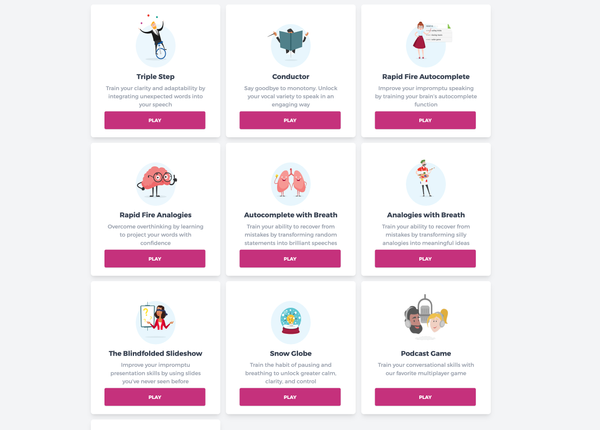Do you remember your earliest experiences with public speaking? Here are two of mine:
- Giving the "graduation speech" for my 5th grade class at Lincoln Eliot elementary. It was a 12-line acrostic poem I wrote and illustrated across a large piece of butcher paper which hung over the podium I stood at while reading the speech. Gettysburg Address it was not. I think we started with "L is for learning, something we do every day at Lincoln Eliot". Still, I enjoyed being chosen for this activity and had fun standing in front of my classmates and teachers reciting this little send off at the gym floor. I later reprised in this role by giving the graduation speech at my high school despite not being the valedictorian (sorry Will!).
- Struggling to maintain composure during Communications and Media elective. We had the equipment for shooting news broadcasts in middle school and once I got the chance to read the news behind the desk with a teleprompter and a return monitor that showed what was on camera. Just one problem: every time I saw myself on the monitor, I cracked up. I couldn't stop laughing. It was so embarrassing because I was excited to do it but I simply could not get more than 3 words out without laughing hysterically.
My conclusion from those experiences is that performing a rehearsed speech in front of an audience is one thing, but speaking to camera is another thing entirely.
In fact I wrote a pretty extensive piece about my learnings and experience going through the TED speaking training (my talk from 2017 now has over 5M views)
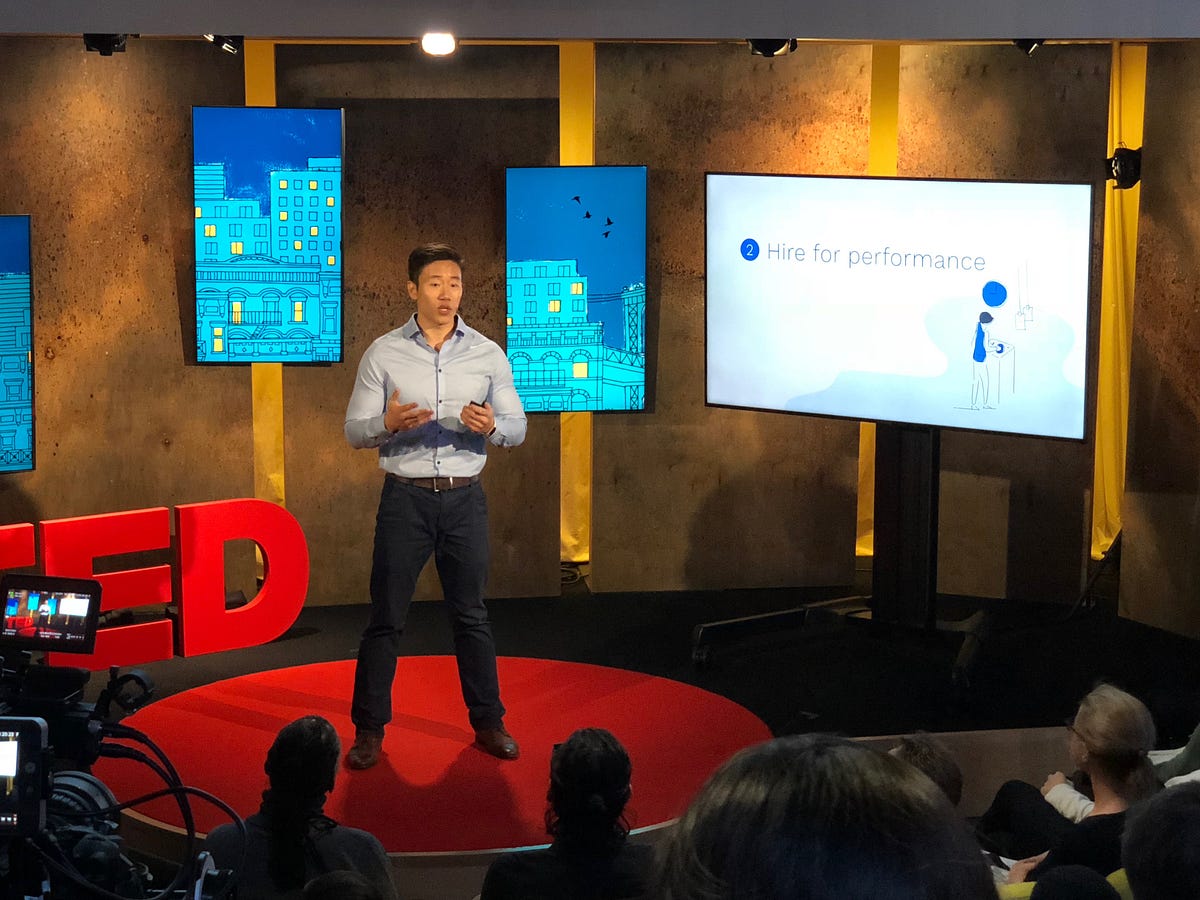
In my role as a coach I both get to speak in real-time to individuals and groups, where I know I'm talking to another human being and can feed of their expressions and responses (or at least imagine them if it's a large broadcast).
But I also have been working to shoot content where there is no live audience, where I need to bring enthusiasm, authenticity, and composure in a very artificial setting—looking into a little black dot with no one on the other side.
Being a coach does not prepare you for being a creator (and probably vice versa).

Enter Ultraspeaking
It was from this speaking context that I participated in the Ultraspeaking's Creator Cohort #6 over the last two weeks. Ultraspeaking is a cohort-based program and self-paced platform designed to help end speaking anxiety and focuses on speaking spontaneously, joyfully, and authentically.
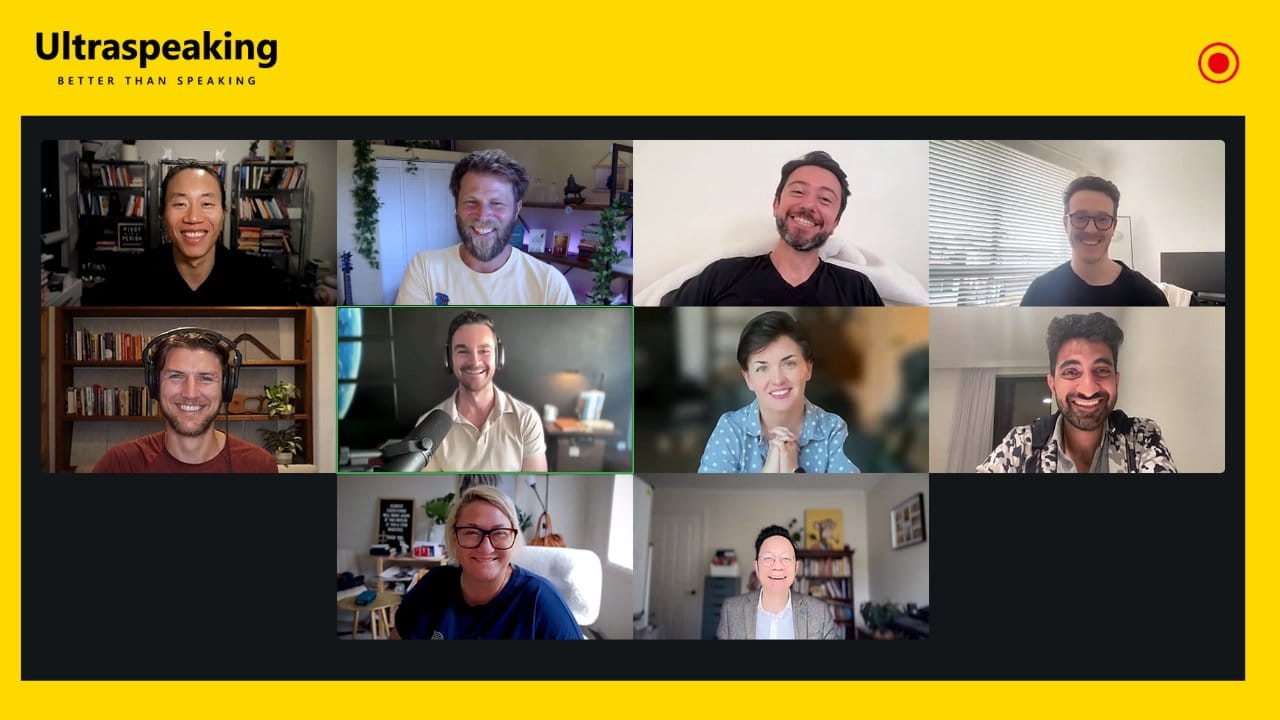
Along with some other really cool folks like Lenny Rachitsky, Ev Chapman, Cathryn Lavery and Jeremy Nguyen, we did two 3 hour training sessions using interactive games to improve our speaking. Joining us were speaker coach speaker coaches Aman Chopra along with Michael Gendler and Tristan de Montebello—cofounders of Ultraspeaking along with Yoshio Goto.
Games > Instruction
There was very little preamble in this program. The idea is to get into various speaking activities and games as quickly as possible—and I loved that. Over the course of the program we played 4 different speaking games, each designed to amplify an aspect of our speaking—spontaneity, energy, pausing, and bookmarking.
It reminded me of my time in gymnastics training, as I wrote in my recap of The Little Book of Talent:
Make it a Game: improving your skill is all about staying meaningfully engaged and finding ways to keep it fresh and fun. In gymnastics, we’d have “stick contests” where we’d progressively challenge ourselves to sticking (landing without moving our feet) harder and hard moves: front tuck, front layout, half twist, full twist, double front, etc.
Spontaneity > Preparation
Our first game was Rapid-Fire Analogies, a game designed to get us to stop thinking and start speaking. We had 4 seconds to come up with a reasonable analogy between two random words, for instance, with this one you'd say out outloud "Batteries are like a jacuzzi because ... they both give you energy." or "they come in different sizes" or "they are both blue colored"
What was challenging about this game was the fast paced nature—you don't have time to overthink it and the goal is to just say something because you then have to face the next analogy. This probably sounds a little stressful and it is, which made it a great introduction to the program.
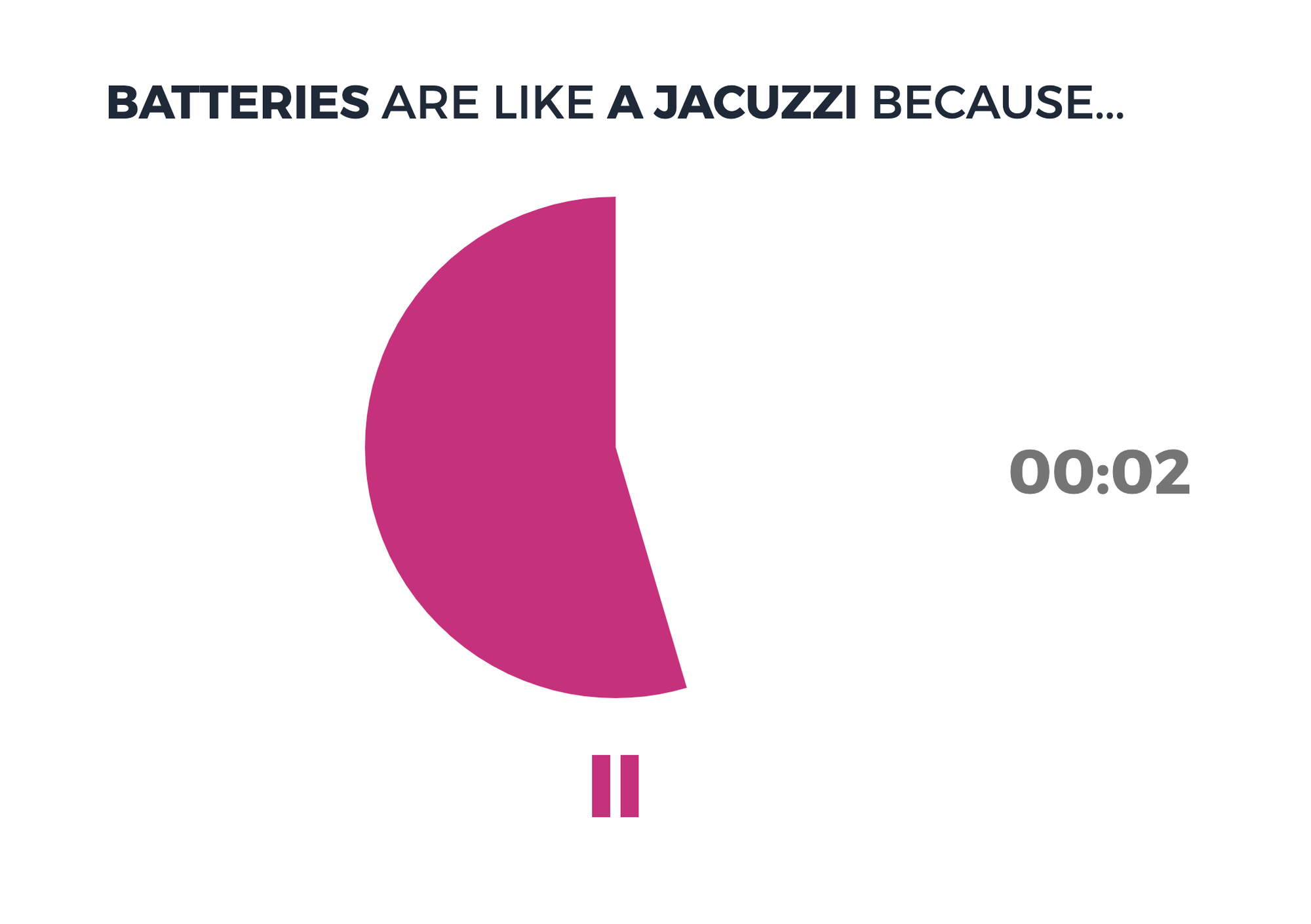
Suggestions > Directives
We would do each of these games in small groups of 2-3 creators with a coach—this allowed us to observe how others were handling the game while providing a managable audience to practice these new skills. After each go around, the coach would ask us how we felt during the game—both the participant and the audience.
One of the points the coach would often make is that what the speaker thinks ("I struggled with that and lost steam at the end") is rarely what the audience perceives ("hey those were some pretty funny analogies!"). They would then provide suggestions or intentions for us to reattempt the game with a new idea or approach.
Enjoyment > Correctness
One of the suggestions Michael offered me was to see if I could focus on enjoying myself during the analogies game, rather than stressing about getting the answers "right". This seems counterintuitive because the entire game can appear to be a test of verbal acuity and quick thinking. Certainly this was my mentality, as my face would show my disappointment when I came up with a bad or nonsensical connection to one of the analogies
But Ultraspeaking's philosophy is all about enjoyment. Their origin story is that Michael, who was briefly VP of Education at Toastmasters, coached Tristan from zero experience to the final stage of World Championships of public speaking in a mere seven months—faster than any competitor in history. But they found something missing in the Toastmaster's performative-focused approach, and cofounded Ultraspeaking. (More on my personal experience some years ago with Toastmasters here).
They went on to coach thousands of students, ranging from professional keynote speakers to people suffering from crippling anxiety.
They found out why most efforts to improve public speaking fail: you have to learn to enjoy speaking before you can get better at it.
"Try to focus most on enjoying this next round of analogies, rather than getting it right. I don't want your face to change no matter what you say" Michael suggested.
Easier said than done to be honest, but a great cue not only in speaking, but life.
Pausing > Rambling
I've noticed that people often go through stages in their development in how they speak up at work. At first, people are shy to speak up at all unless called upon. Then they become comfortable sharing in specific areas of expertise where they know what they want to say. Next they are able to speak up proactively even when they are figuring out the answer as they go along.
But at this stage, it's common to find yourself rambling to take up air time. Speaking filler thoughts while trying to figure out the root of what you want to say, rather than fully stopping to collect your thoughts. This is often where I find myself.
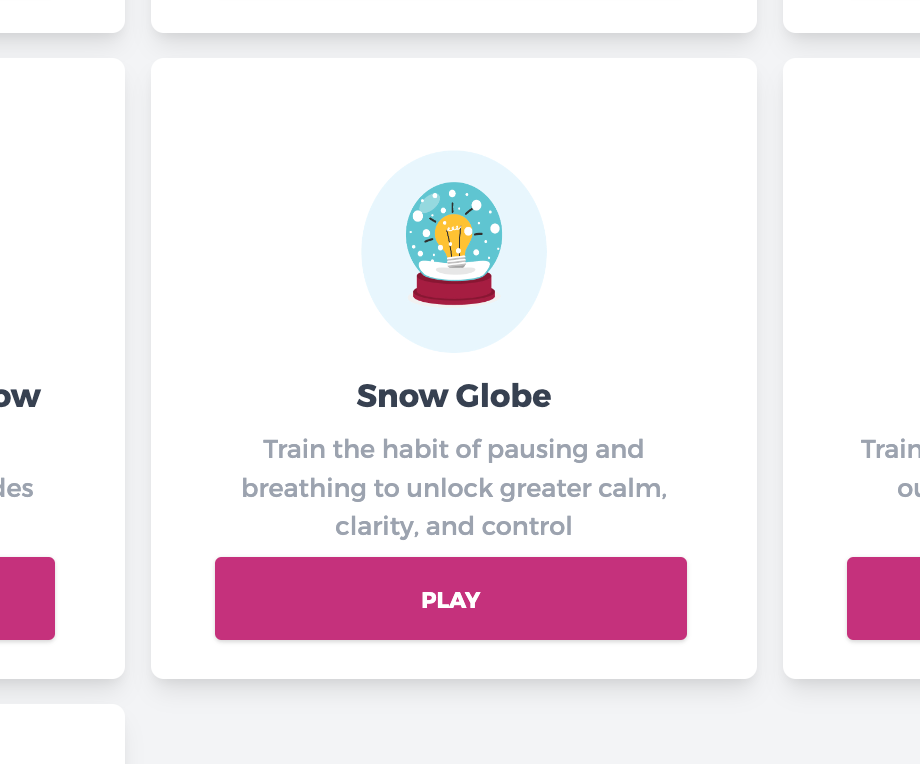
One of the games we played called Snow Globe forced us to speak for one minute on a topic but pause at random intervals to take a long deep breath before continuing. "Speak less and say more" was the big idea.
By letting my thoughts (i.e. the "snow") settle, I was able to more clearly articulate what I wanted to say, with the speech often going in a very different direction after the pause. To triple down on this point, our coach Aman played the game in reverse, where we only had 12 or so seconds within an entire minute to share our thoughts. Both me and my partner found each other hanging on to every word the other shared, an example of the attention-drawing power of a good pause.
Stories > Lessons
In perhaps contradiction to what I am doing here in this piece, Ultraspeaking's training reminded me of the timeless truth that people forget what you tell them, but they remember the stories and images you share—because of how you made them feel.
Stories are about things you saw, wants you pursued, people you met, and emotions you felt. They are about events rather than ideas. (For more on telling great stories, see my 5C's Story Framework here)
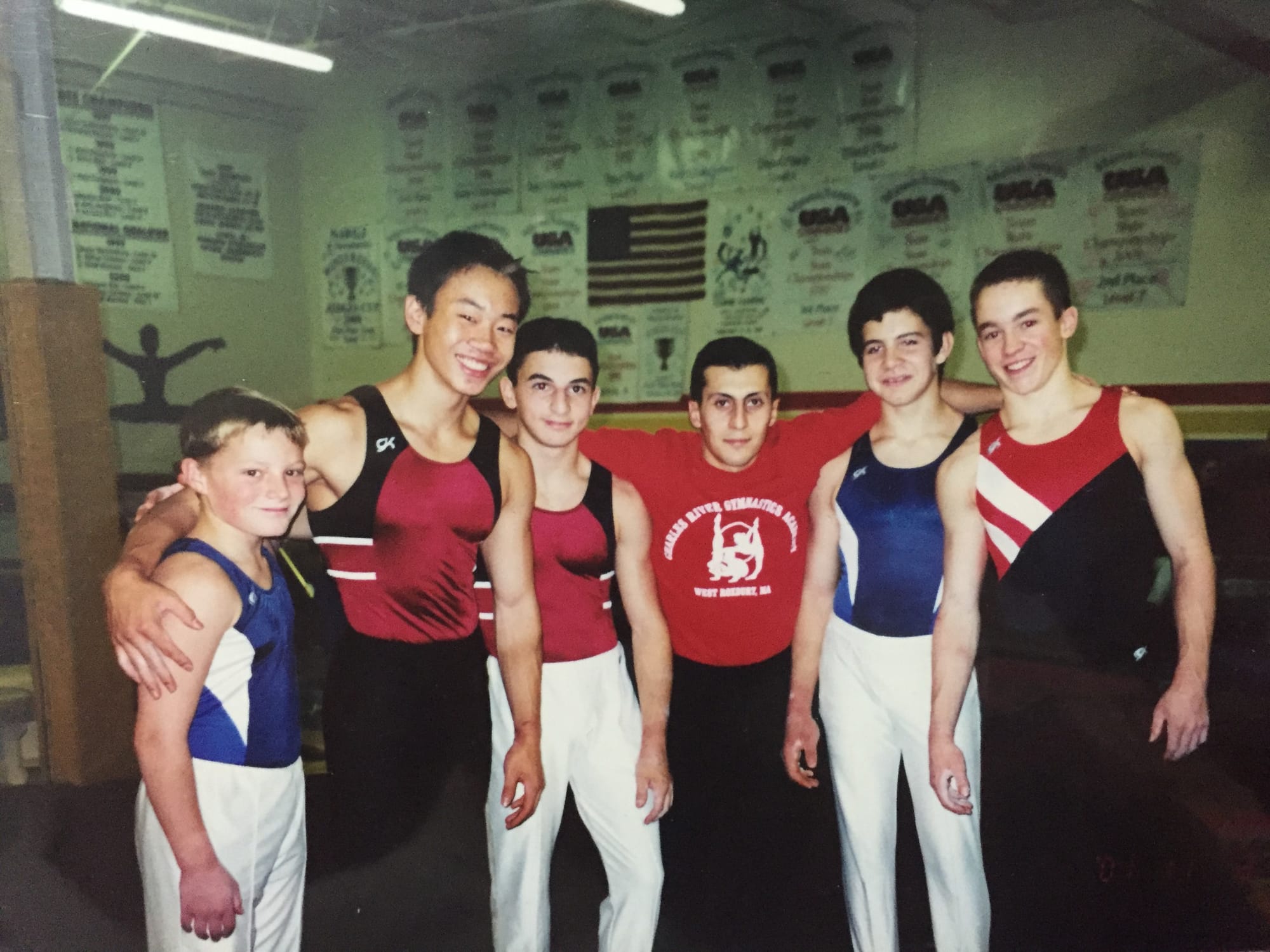
If I tell you about my high school gymnastics coach Levon from Armenia, all of five foot nothing with a hook nose and a voice that scared the bejesus out of me. Levon made me repeat my skills until they were nearly perfect, he spotted every bent leg and separated toe, kept me late nearly every night, and poured strength and conditioning exercises that left us dreading the end of the workout. And yet in one year, even with subpar equipment and training conditions, I placed onto the junior national team. That story will stay with you far longer than my lesson—that champions are made from training with great intensity.
Cues > Context
The last lesson I'll share from Ultraspeaking was from our final game: the Accordion Method. This game had us speaking about a topic we actually cared about, one that related to an upcoming event, talk, or piece of content we might record. Lenny for instance had a talk coming up for his Lenny and Friend's conference.
First we spoke about our topic off the top of our head for two minutes. Then we had to compress the idea down to 90 seconds, then one minute, and finally 30 seconds. All along the way we were working with our coach and the other participants to iron out what exactly we were trying to say.
Both me and my partner spent too long providing context for our story, rather than getting into the meat of our points. By shortening the time frame, we eventually were forced to identify a 1-2 sentence introduction followed by three cues or bookmarks that would lead us into the next segment of the talk.

These cues were essentially short phrases that triggered our memories "I've tried everything to make it easier" or "But the gymnasts that grew the fastest". Once we honed those cues and cut down the context, we had the essential structure for a talk that could take two minutes or twenty. The second half of the game had us slowly expanding the timeframe and both my partner and my own final speech sounded extraordinarily thoughtful and prepared, despite neither of us writing down a single word of notes or transcript.

Final Thoughts
Ultraspeaking is not like a traditional public speaking program. There is no:
- Focus on filler words
- Emphasis on diction or pronunciation
- Breathing exercises
- Focus on uptalk or down talk
- Prescribed "best way" of speaking
Instead the focus was entirely on creating a collaborative and supportive environment where you got to play with energy and volume, explore what you actually wanted to say, and felt good the entire time you were speaking.
That's not to say that those other things could help you be a better speaker. And I think at the advanced levels or professionals with ambition, that kind of focus could make a difference for your ability to be an influential and noticeably skilled speaker.
But if you agree with Antoine de Saint-Exupéry, if you believe, as I do, that the path to mastery begins with joy and deep connection to an activity, then Ultraspeaking could be an amazing program for you.
Ultraspeaking runs the Creator Cohorts at no cost but I was neither required to write a review nor do I get paid if you sign up for their next cohort (which begins October 1st). I just happen to love speaking and was grateful for the opportunity to explore a radically different way of helping you get better at it.
